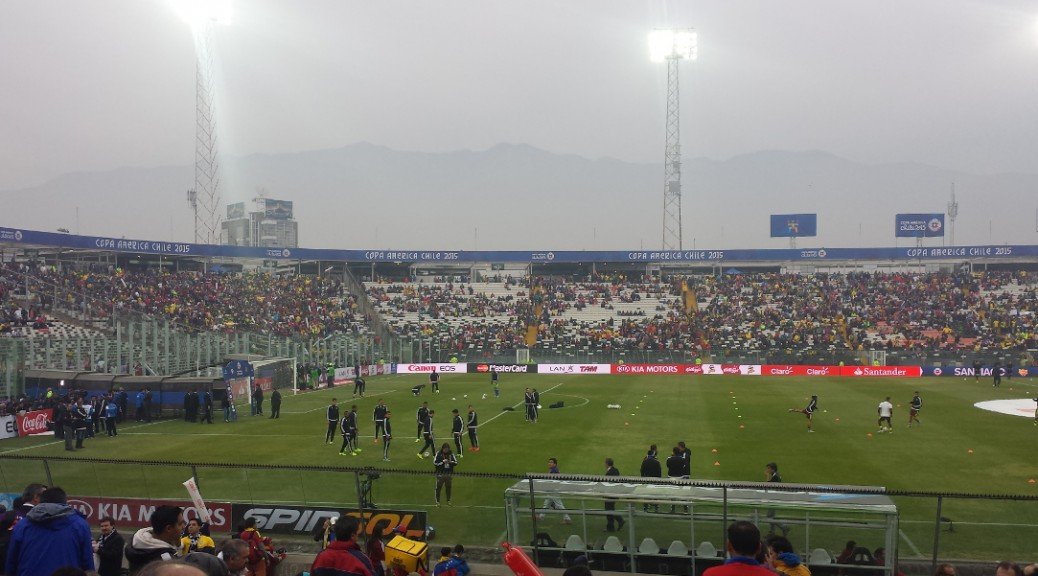I have 2 days left in Santiago, Chile. This weekend, I’m taking a 54-hour bus to Lima, Peru.
On Friday I’ll wake up at 05:30 to walk myself and all my possessions to the bus station. The bus goes north up the Chilean desert, through the Chile-Peru border just past Arica, across the Peruvian mountains that hug the Pacific Ocean, and down into Lima, Peru.

The longest bus trip I’ve taken was a greyhound in the States–20 hours from Washington, DC to Asheville, NC. The experience was bearable, but the Peruvian bus lines are far, far better than the in the States. These buses have “VIP” seats that recline nearly flat; they’re designed for international, long distance travel. Plus, they serve vegetarian food 3x/day. And there’s…bingo. Good and bad, it should be a great experience. And I am looking forward to seeing more of the Latin American country-scape outside of this city.
But, still, I have 2 days left in this city. 7.2 million people live in and around Santiago, and I’m standing outside on the balcony in the cold winter night air of a 13-story building. As I’m looking out at many other condominium high-rises around, suddenly, I hear pots banging.
My eyes focus in the window-scape, and I see dots of Chilean women poking-out of their curtains, leaning out of their windows banging their silverwear and pots. Why? It was an organized protest.
it was nice to dip my feet in the same Pacific I’d known from California, albeit dramatically further South
At 22:00, the residents of wealthy communes Los Condes, Providencia, and Vitacura began a cacerolazo protest. It was scheduled to last 5 minutes; the banging continued for 20. I later learned the protest were to recognize recent increases in crime in these wealthy neighborhoods. It was an empowering spirit, but I soon learned that this style of protest originated in 1973 by the upper class against the policies of then-president Salvador Allende.
The working class and students (those who are truly have reason to protest) don’t peak their heads out of their windows and bang pots for 20 minutes to achieve change. They take to the streets, occupy buildings, and demand change.

Alas, I had a good time in Chile. My host graciously offered me his season tickets to a the stadium, where I got to watch Venezuela play Brazil in Copa America. The match was exciting, though the crowd of spectators ironically chanted for Chile (chi-chi-chi le-le-le. viva chile!). Behind the stadium lights, the immense backdrop of the Andes provided a stunning scene. And the tall razor-wire topped fence segregating the stadium seats from each other was an indication of the passionate, sometimes violent tenancies of the spectators. To my surprise, alcohol was not served at the event, as it would only increase the possibility for violence.
I also had a chance to visit the beach. My host had a beach home in Maitencillo along the coast, where I was humbly welcome to join his large Italian-Chilean family as we celebrated his birthday. The waters were cold, but it was nice to dip my feet in the same Pacific I’d known from California, albeit dramatically further South. And the stray dogs here were the happiest I’d ever seen.
I had a good time in Santiago, but I’m looking forward to the warmer climate in Peru!






